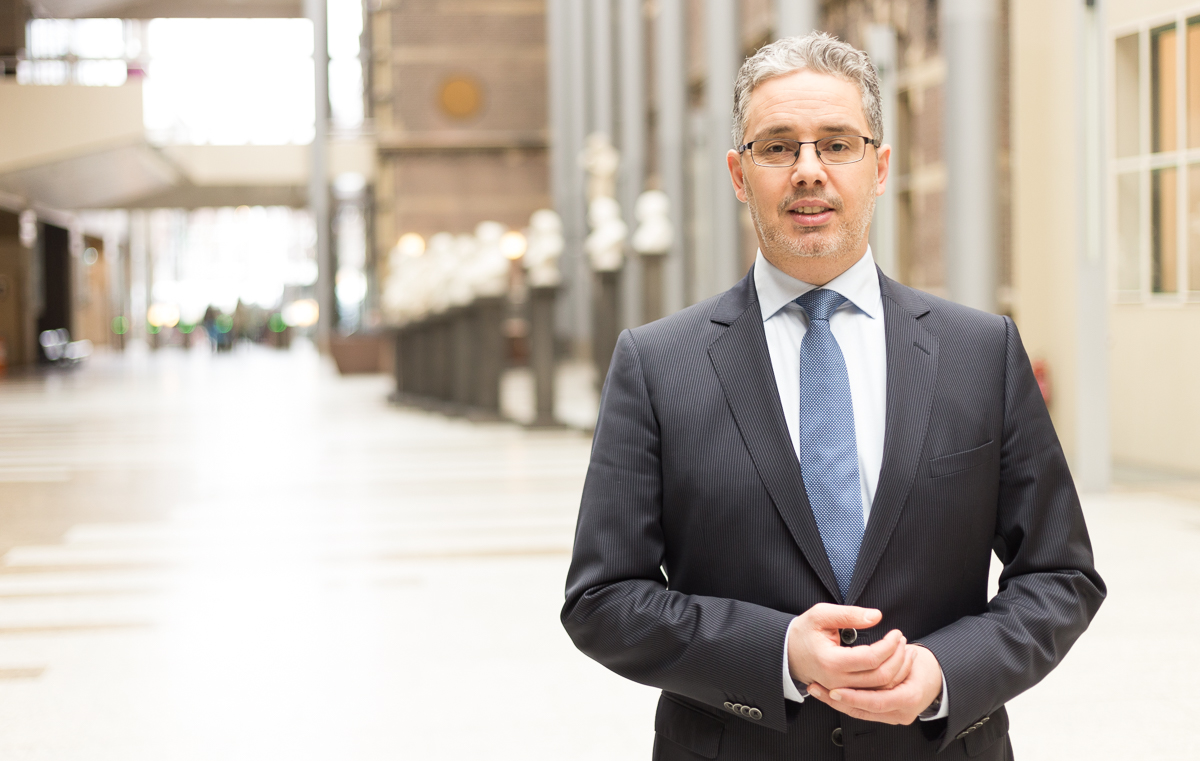He submitted two amendments during the budget negotiations, and successfully. Mustafa Amhaouch (CDA) secured €2,000,000 for internationalizing SMEs and €500,000 for digitizing SMEs, respectively. In implementing that policy, Amhaouch sees a special role for regional development companies (ROMs).
Many things we decide nationwide, he says, but in the région it happens. Digitization funds should therefore benefit SMEs through the ROMs. The internationalization funds are for the benefit of the broader Trade & Innovate NL partnership, which aims to help more SMEs do international business through the ROMs. For Mustafa Amhaouch, the motivation for the amendments was clear: in our flight forward, we need to bring along not only the leaders in business, but also the rest of the pack. For that, the ROMs need more clout.
"Innovating is like getting up one more time than you fell. I myself worked for 20 years, half my life, at an innovative company: ASML," says Mustafa Amhaouch. "I am one of the few in the Chamber with a technical background, I know what makes innovation happen. It challenges people and companies to push their boundaries. Automation in the automotive industry has brought us incredible work; more jobs, certainly not fewer."
Why these two amendments for the digitization and internationalization of broad-based SMEs?
"For me, SMEs are the foundation of society. At the same time, SMEs often have much more difficulty than, say, a large company in finding the right counters and information. We have to help them with that. Only a small part, for example, is still working on robotization. But also that broad SME must be able to take steps on digitalization."
Why is it so important for SMEs to digitize?
"You see that economic growth is now mostly linked to the number of jobs. The link with labor productivity is less there. Now that there is enormous pressure on the availability of good skilled labor - smart hands and bright minds - we must ensure that we become more productive with the same number of people. If we can design production processes to increase labor productivity, that's a win-win."
And whence internationalization?
"7 of the 12 provinces border Germany and Belgium. The eastern part of the country is adjacent to the Ruhr, an area of 17 million people that is as big as the whole of the Netherlands. The question is: Can we help SMEs with good, innovative products to look across the border. How can we capitalize on the opportunities of participating in trade missions? That starts with business in Germany and Belgium. But just as easily you then try the next step, towards Africa or Asia."
"Currently, I am advocating that the Netherlands should come up with a trade strategy for Africa. Africa is experiencing great demographic development and great economic growth. Everyone is focusing on China. But that is often already a done deal. Now with the developments in Africa, you can be there at an early stage. You have to start thinking now: what do the entrepreneurs need, how can we facilitate them? There are enormous export opportunities in agro-food, water and energy. There is a world to be won there."
You focus specifically on broad-based SMEs in the amendments. "Yes, you see it literally on a bicycle: if you make sure that the frontrunners and the broad peloton stay close together, you keep each other out of the wind. You strengthen your competitive position as the Netherlands."
And how do you view the role of ROMs in implementing these policies?
"The ROMs have a crucial role in identifying opportunities, both among the frontrunners and among the broader SME community. The ROMs know all the relevant players in the region. Who has potential to make that step abroad? Moreover, the ROMs work together, sharing knowledge among themselves. We should not keep reinventing the wheel. And don't keep inventing new counters. We already have too many offices in the Netherlands. The ROMs do demonstrably good work; use that knowledge and that network. We want to give the ROMs a little more bandwidth to be able to pay attention to that broad peloton."
From business four years ago, you entered politics, how do you like it?
"Getting better and better. I'm starting to find my niche. You slowly build up a network, which suddenly allows you to mean more. Through which, sometimes on small and sometimes on larger issues, you can suddenly make a difference."
